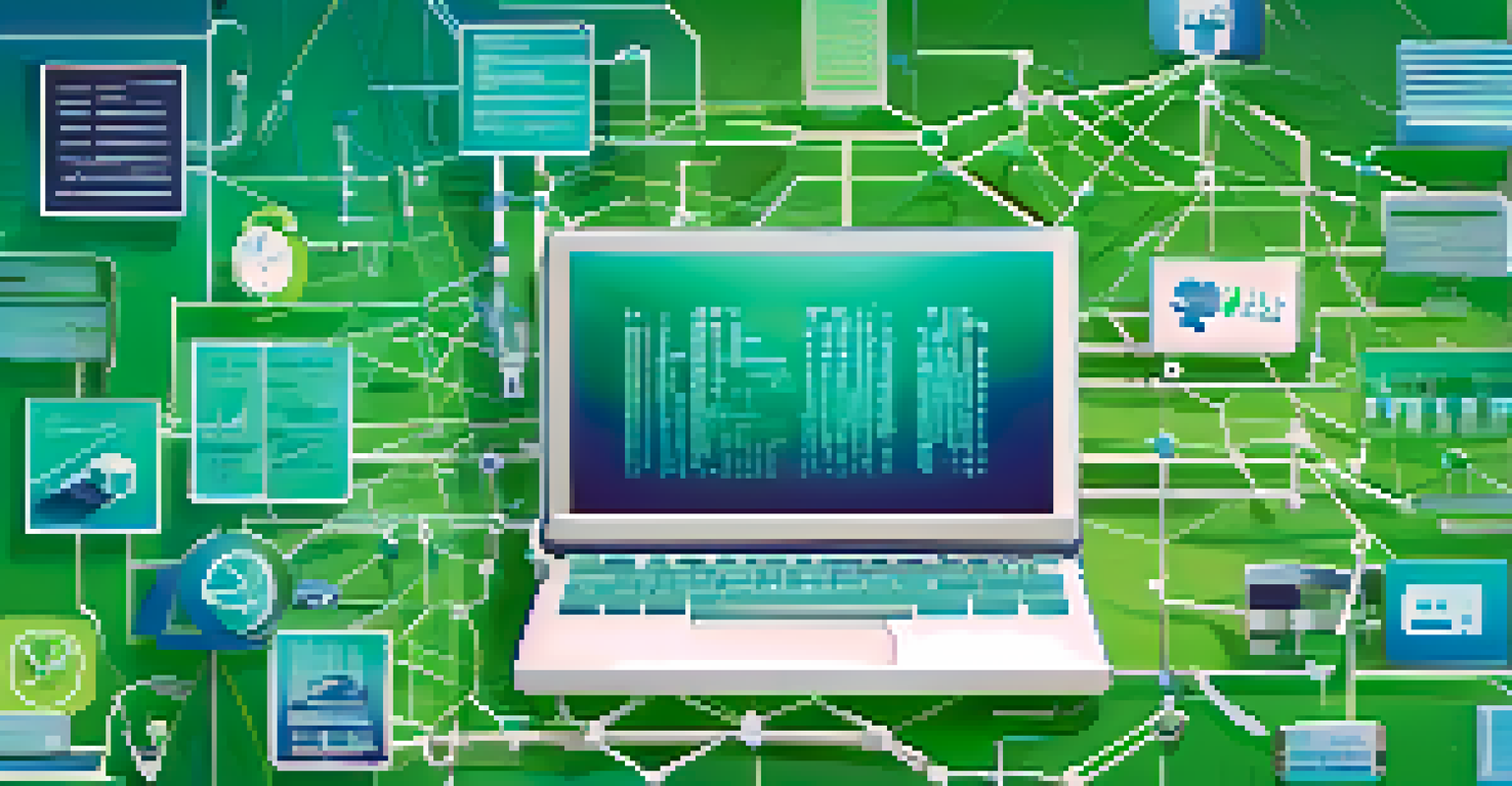Impact of Gig Economy on Job Security for Workers

Defining the Gig Economy and Its Growth
The gig economy refers to a labor market characterized by short-term contracts and freelance work, often facilitated by digital platforms. Over the past decade, we've seen a significant rise in this type of employment, largely due to technological advancements and changing societal norms. Many workers are drawn to the flexibility and independence that gig jobs offer, allowing them to choose when and how much they work.
The gig economy is a perfect example of how technology is transforming the workforce, offering flexibility but also creating new challenges for job security.
However, this growth raises questions about job security. Unlike traditional employment, gig work typically lacks the stability of a steady paycheck and often comes without benefits such as health insurance or retirement plans. As more individuals turn to gig work, understanding its implications for job security becomes crucial.
As we explore this topic, it's essential to consider both the allure of gig work and the potential risks that come with it. While many workers appreciate the freedom, they also face uncertainty that can affect their long-term financial stability.
Benefits of Gig Work: Flexibility and Autonomy
One of the most appealing aspects of gig work is the flexibility it provides. Workers can often set their own hours and choose projects that align with their skills and interests. This autonomy allows for a more tailored work-life balance, which is increasingly important in today's fast-paced world.

For instance, a graphic designer may choose to take on freelance projects that fit around their family commitments, allowing them to earn an income while still being present at home. This flexibility can lead to improved job satisfaction, as individuals feel more in control of their professional lives.
Gig Work Offers Flexibility
The gig economy provides workers with the freedom to choose their hours and projects, enhancing work-life balance.
However, this freedom comes with a trade-off. While the flexibility can be a significant advantage, it can also lead to unpredictable income, making it difficult for gig workers to plan for the future. Understanding this balance is key to navigating the gig economy.
Challenges of Job Security in Gig Work
Despite the benefits, gig workers often face considerable challenges regarding job security. Unlike traditional employees, they do not have guaranteed work and can experience fluctuations in demand for their services. This unpredictability can create financial stress, particularly during economic downturns or seasonal slumps in certain industries.
In the gig economy, the path to financial stability requires not just hard work but also smart financial planning and adaptability.
Additionally, gig workers typically lack the legal protections afforded to full-time employees. This absence of safeguards means they might not qualify for unemployment benefits or workers’ compensation in case of accidents. For many, this uncertainty can be daunting, leading to anxiety about their financial future.
To navigate these challenges, workers must adopt proactive strategies, such as diversifying their income streams or saving for leaner months. Understanding the landscape of gig work is essential for anyone considering this path.
The Role of Technology in Job Security
Technology plays a dual role in the gig economy, offering both opportunities and challenges for job security. On one hand, platforms like Uber, Upwork, and TaskRabbit have made it easier for workers to find gigs and connect with potential clients. This accessibility can create a steady stream of income for those who are savvy in using these tools.
On the other hand, reliance on technology can also lead to vulnerabilities. For instance, algorithm changes or platform policies can significantly impact a worker's earnings. If a gig platform decides to lower its fees or change its payout structure, workers may find themselves scrambling to adjust their strategies.
Job Security is a Major Concern
Gig workers often face financial instability and lack protections typically afforded to traditional employees.
It's essential for gig workers to stay informed about these changes and adapt accordingly. By leveraging technology wisely, they can mitigate some of the risks associated with gig work.
Gig Economy and Worker Rights: A Growing Concern
As gig work has proliferated, so too have discussions about worker rights. Advocacy groups argue that gig workers deserve the same protections and benefits as traditional employees. This movement has gained momentum, prompting some legislative changes aimed at improving conditions for gig workers.
For example, some states have introduced laws that require gig companies to provide certain benefits, such as health insurance or paid time off. These changes aim to address the imbalance between the flexibility of gig work and the security traditionally offered by full-time jobs.
However, the conversation is ongoing, and the future of gig worker rights remains uncertain. It's crucial for workers to stay informed and advocate for their rights as the gig economy continues to evolve.
Financial Planning for Gig Workers
Given the inherent instability of gig work, financial planning becomes a vital skill for success. Gig workers must proactively manage their income, setting aside savings for taxes and lean periods. This financial foresight can help mitigate some of the unpredictability associated with gig employment.
One effective strategy is to create a budget that accounts for both fixed and variable expenses. By understanding their spending habits, gig workers can establish a financial cushion that provides greater peace of mind during slower months. Additionally, exploring options like emergency funds can further enhance financial security.
Financial Planning is Essential
To navigate the unpredictability of gig work, effective financial management and budgeting are crucial for long-term success.
Ultimately, taking control of their finances allows gig workers to focus on their craft without the constant worry of financial instability. By prioritizing financial health, they can enjoy the benefits of gig work while minimizing its risks.
The Future of Job Security in the Gig Economy
As the gig economy continues to expand, the conversation around job security will only grow more critical. Experts predict that gig work will become an increasingly prevalent component of the labor market, prompting further discussions about worker rights and protections. This evolution will require both workers and policymakers to adapt to new realities.
Emerging trends, such as the rise of remote work and technological advancements, will likely shape the future landscape of gig employment. As these changes unfold, gig workers will need to remain agile and informed to navigate the evolving market effectively.

In conclusion, while the gig economy offers unique opportunities, it also presents significant challenges for job security. By understanding these dynamics, workers can better prepare for the future, whether they choose to embrace gig work or seek more traditional employment.